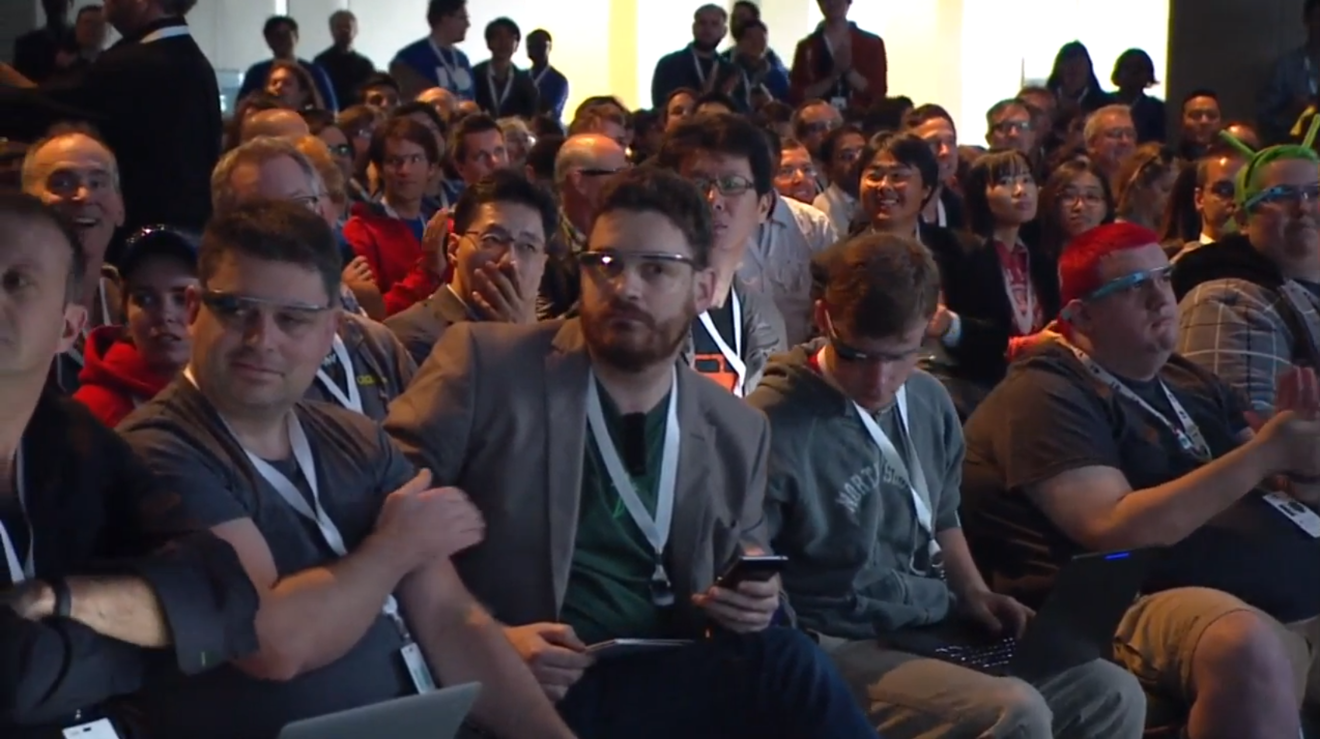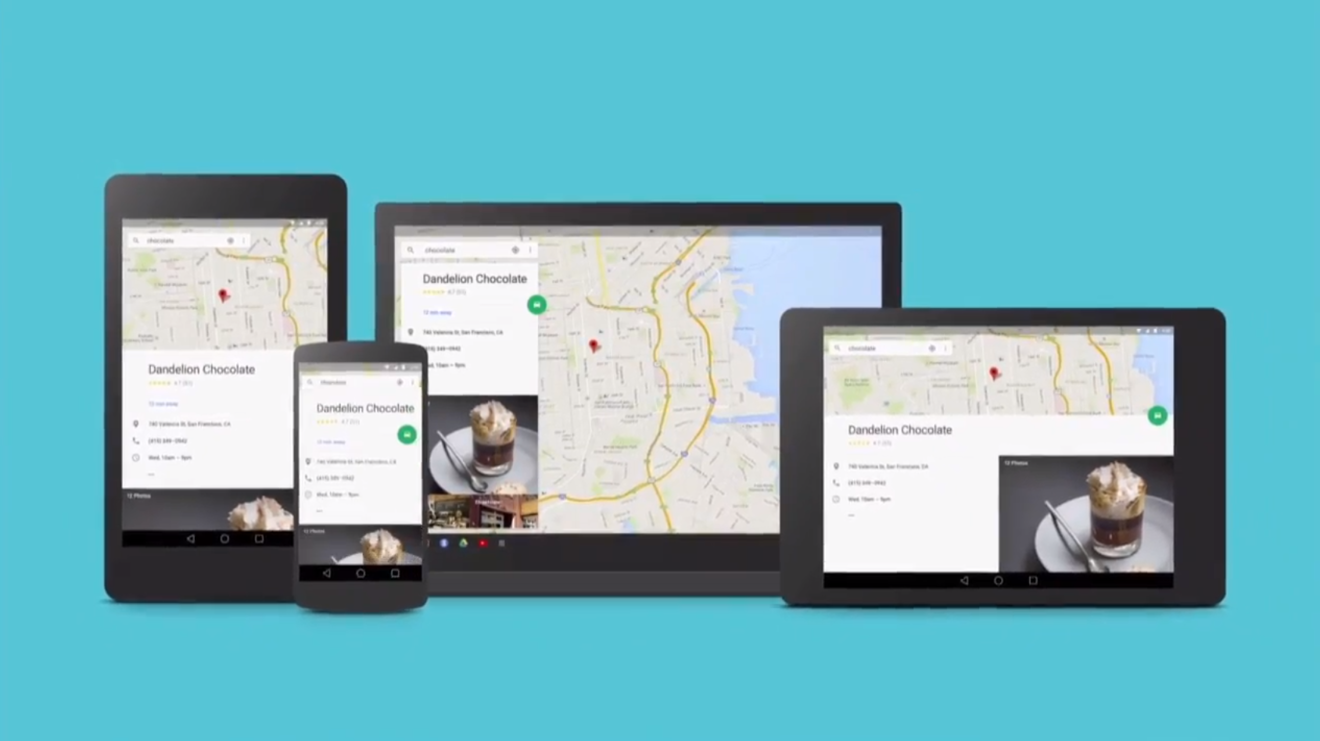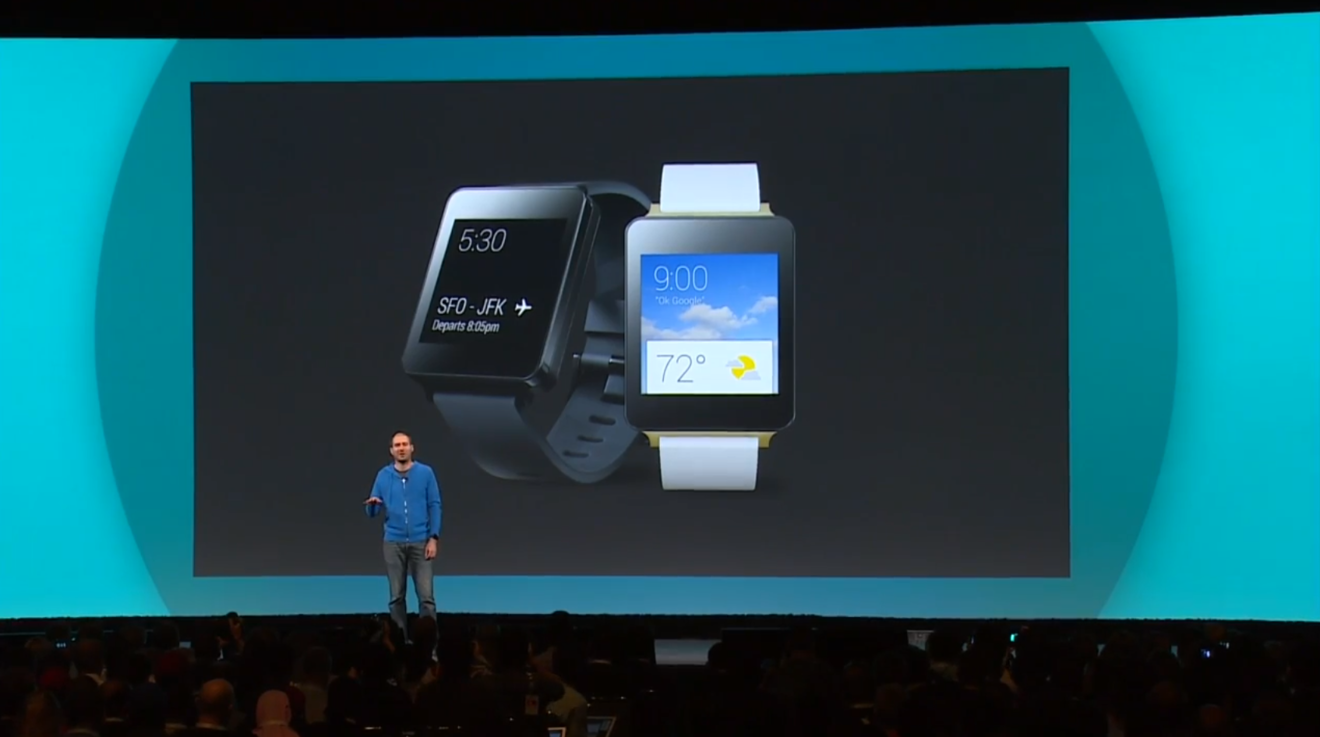Google this week announced a number of new products and services for phones, tablets, cars, TVs and more, all of which will compete with Apple. But after seeing Google's latest, Apple-watchers on Wall Street aren't concerned.
During its keynote presentation this week, Google revealed that it has paid $5 billion to Android application developers over the last 12 months. Analyst Timothy Acuri of Cowen and Company issued a note to investors on Thursday, a copy of which was provided to AppleInsider, saying the amount Google paid to developers in the last year shows that Apple's ecosystem continues to generate more money for developers.
Acuri noted that Apple paid out around $8 billion to developers in calendar year 2013, and that was about 100 percent year over year growth from 2012. With iPhone sales continuing to grow and the installed base of users larger than ever, he believes developer revenue growth has continued into the first half of 2014.
If App Store purchases have grown at the same rate thus far in 2014 as they did in 2013, that would imply that Apple is still generating twice the aggregate trailing 12 months revenue as the Google Play Store. This despite what Acuri estimates is an installed base about half the size of Android's current monthly active users.
With OS X Yosemite and iOS 8 set to launch this fall, a new programming language for developers called Swift, high hopes for this year's anticipated "iPhone 6," and rumors of a forthcoming "iWatch" launch, Acuri remains bullish on AAPL stock with a price target of $102.
"We expect Apple's ecosystem to remain the dominant platform for developers for the foreseeable future," he wrote.
Rod Hall of J.P. Morgan also provided his take on Google I/O on Thursday, and came away with a similar conclusion that the announcements aren't likely to affect Apple. He noted that Google focused heavily on consistent design and flexibility across multiple form factors — Â something that Apple already does well between iPhone, iPad and Mac.
"All in all we felt the seamless integration was the main new feature, but we question just how useful this will be given very few people are using Google laptops and tablets," Hall wrote.
Google's announcements focused on placing Android everywhere, with the newly redesigned Android L operating system focused on smartphones and tablets, Android Auto targeting vehicle infotainment systems, and Android TV taking on the living room. All three platforms will respectively compete with Apple's iOS for iPhone and iPad, CarPlay support from iOS 7 and later, and the Apple TV set-top box.
Google also spotlighted Android Wear along with a trio of smart watches running the platform. Apple is expected to enter that space this fall with the debut of a rumored "iWatch."
"The key takeaway for us is that Google wants to disembody Android from the device and have it float around wherever you happen to be on any device seamlessly," Hall said. "This is, on our opinion, similar to Apple's vision but potentially tougher for Google to implement given their device ecosystem is largely limited to smartphones today."
 Neil Hughes
Neil Hughes






-xl-m.jpg)


-m.jpg)






 Thomas Sibilly
Thomas Sibilly
 Wesley Hilliard
Wesley Hilliard
 Christine McKee
Christine McKee
 Amber Neely
Amber Neely
 William Gallagher
William Gallagher
 Malcolm Owen
Malcolm Owen

 Mike Wuerthele
Mike Wuerthele








73 Comments
Wow... Wall Street NOT pooping all over Apple. Welcome to Bizarro World.
[quote name="Michael Scrip" url="/t/180957/wall-street-doesnt-see-googles-i-o-announcements-posing-a-threat-to-apples-ecosystem#post_2556173"]Wow... Wall Street NOT pooping all over Apple. Welcome to Bizarro World.[/quote] Like everyone else they either feel asleep and/or couldn't figure out what focus they had at the event. I watched it and I have to struggle to think of a coherent theme or any breakout products that are pushing the envelope for the next year. Not mentioning Google Glass (or Google+) certainly didn't help after mentioning pretty much everything else in a haphazard manner.
Wait - do we care about Wall St opinion or not? I get confused in the head. Sometimes we don't and rail against their pronouncements. But today we do! Stop playing with my emotions AI.
[quote name="SolipsismX" url="/t/180957/wall-street-doesnt-see-googles-i-o-announcements-posing-a-threat-to-apples-ecosystem#post_2556175"] Like everyone else they either feel asleep and/or couldn't figure out what focus they had at the event. I watched it and I have to struggle to think of a coherent them or any breakout products are pushing the envelope for the next year. Not mentioning Google Glass (or Google+) certainly didn't help after mentioning pretty much everything else in a haphazard manner.[/quote] Plus no real surprises like we saw at WWDC. Pretty much everything they announced was rumored beforehand.
It’s pretty simple to understand: We care about it when it’s wrong. How’s that confusing?